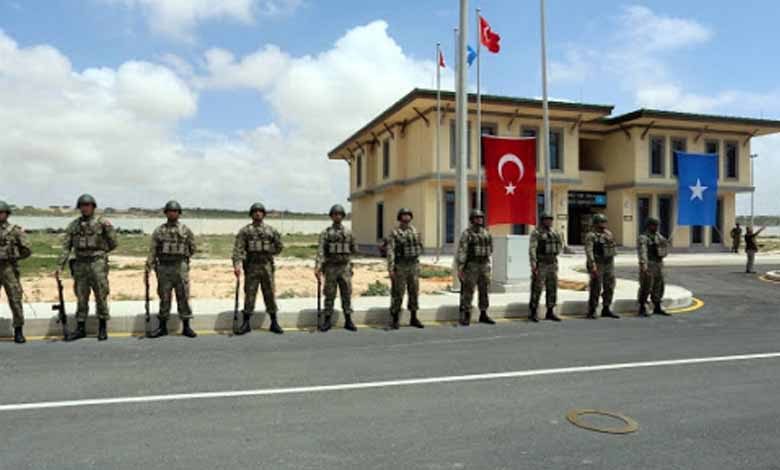Turkey’s ambitions in Somalia

The Somali opposition has accused Turkey of interfering in the country’s electoral process and providing weapons to the president’s armed forces.
This is the second time in less than two months that such an accusation has been made. Sources familiar with the Ministry of Defense told the Middle East and North Africa Financial Services Network on 22 March that Turkey had sent a shipment of arms and armored vehicles to Somalia with the aim of arming Turkish-trained special forces.
The move is provocative, as special forces are known to be intervening in the country’s elections alongside Somali President Mohamed Abdullahi Mohamed (referred to as “Farmajo”).
Opposition candidates have expressed concern about the arrival of such weapons from Turkey in such a sensitive electoral period, according to a May report on the Garowe News website.
Candidates for Garowe said the advanced weaponry would be used by Turkish-trained special forces to control the long-delayed upcoming elections as Farmajo planned to extend his term by two more years. “The Somali parliament’s lower house rejected the extension on 2 May, after Farmajo himself approved the move.”
There is no clear indication that Turkey sided with Vermago in the election, as Ankara’s goals in Somalia appear to be outside the political process.
What are Turkey’s goals in the country?
Brendan Cannon, a professor at Khalifa University of Science and Technology, said in a 2016 research study: “Somalia has become a major destination for Turkish goods and services, including construction materials, medical equipment, education and school development, engineering expertise, and household items ranging from teapots to clothing.”
“The Turkish presence is everywhere. Turkey has become like a McDonald’s in Mogadishu. Her flags are everywhere, just like yellow McDonald’s bows everywhere in America.”
Cannon said exports were not the main reason for Turkey’s presence in Somalia. the two countries share a common Sunni Muslim religion and culture.
Turkey is also engaged in Somalia for two main reasons : international standing, capital. This decision was closely coordinated with Turkish companies, government ministries and NGOs. “In short, Turkey has chosen Somalia as a stage to burnish its foreign policy credentials and obtain the soft power status felt by the leadership in Ankara that appropriately reflects Turkey’s emerging status.”
Somalia is an extraordinary success of Turkish foreign policy. In a May 2019 report, the Brookings Institution said : “Turkey has only been involved in Somalia since 2011. Yet it could point to a series of successes, materialistic overtones, and a broad presence in the country. Turkey’s overall efforts in Somalia and its projection of the “soft power” of funds, trade, in-kind donations, infrastructure rehabilitation and development projects have been positively welcomed within and outside Somalia.
It all started when Erdoğan first visited Mogadishu in 2011 amid a devastating famine and was the first non-African leader to visit the war-torn capital in two decades.
According to Brookings : “What started out as a humanitarian initiative grew fundamentally into a more comprehensive policy : “Ankara increased aid funding, initiated development projects, opened schools, and took a leading role in shaping the nation-building agenda, including opening a large military facility to train the Somali government.” “Today, Turkish companies operate the ports and seaports in Mogadishu, their markets are full of goods manufactured in Turkey, and Turkish Airlines is heading directly to the capital to be the first major international airline to do so.”
Somalis have widely praised Ankara’s approach in Somalia, which is backed by Erdoğan’s call for Islamic solidarity and a clearer presence on the ground than traditional donors.
While officials in Ankara say that Somalis have come to appreciate the soft power of Turkey’s investments, its presence is not universally appreciated.
“According to Cannon, Turkey is trying to present itself as an essential force beyond its immediate neighborhood.” This effort has been largely successful in Somalia. “But most of its influence, according to the Brookings Institution, is in the Somali capital, Mogadishu, and there were signs of resentment of Turkey’s role from areas outside the capital.”
The Somali opposition remains convinced that Turkey intends to play a large-scale military role in the upcoming elections. The elections are essentially a clash between different clans that actually emerged in the violence in April.
“If Ankara chooses to engage in an armed conflict in Somalia, it risks losing the lofty sentiment it has rewarded in the past.”












